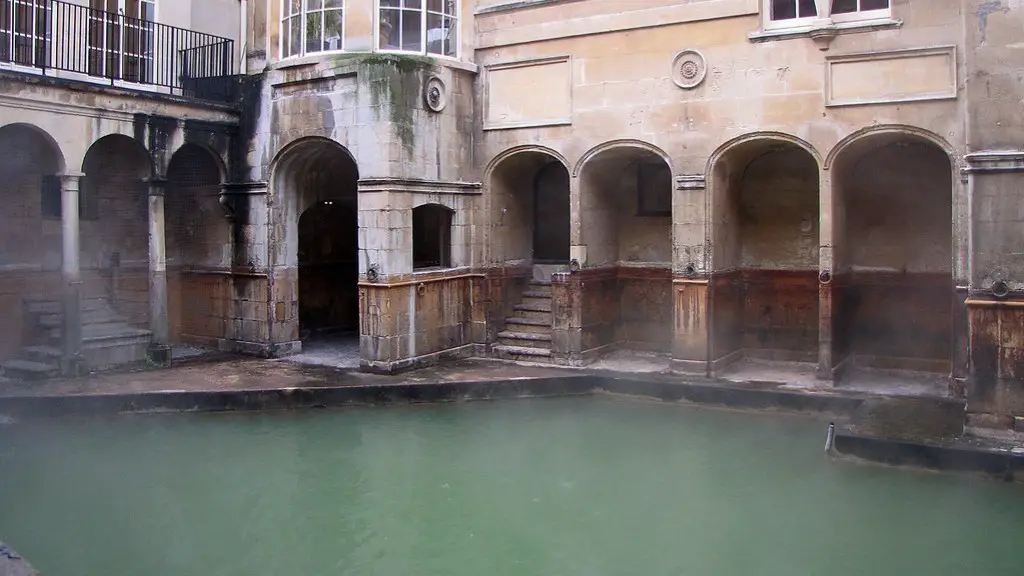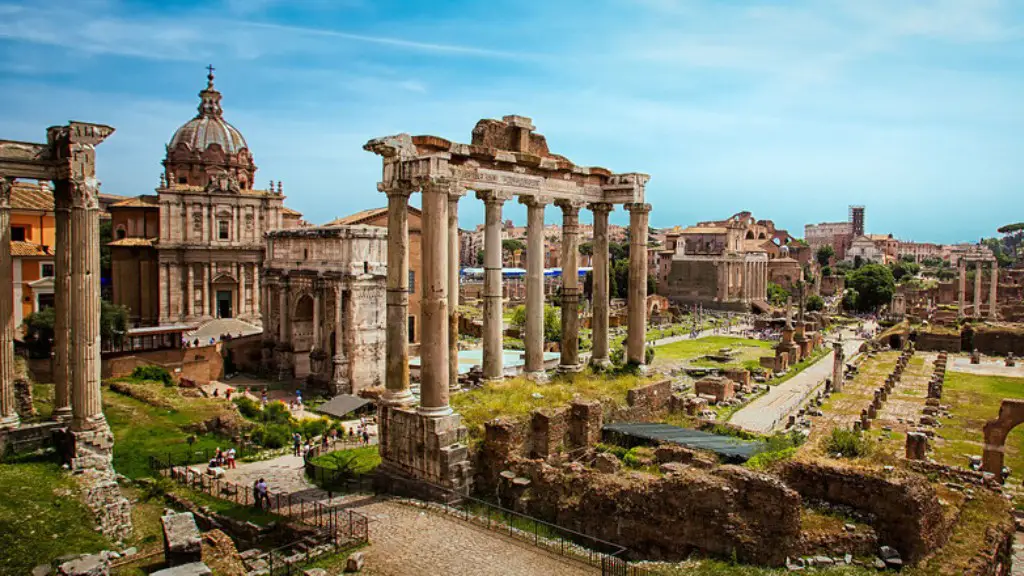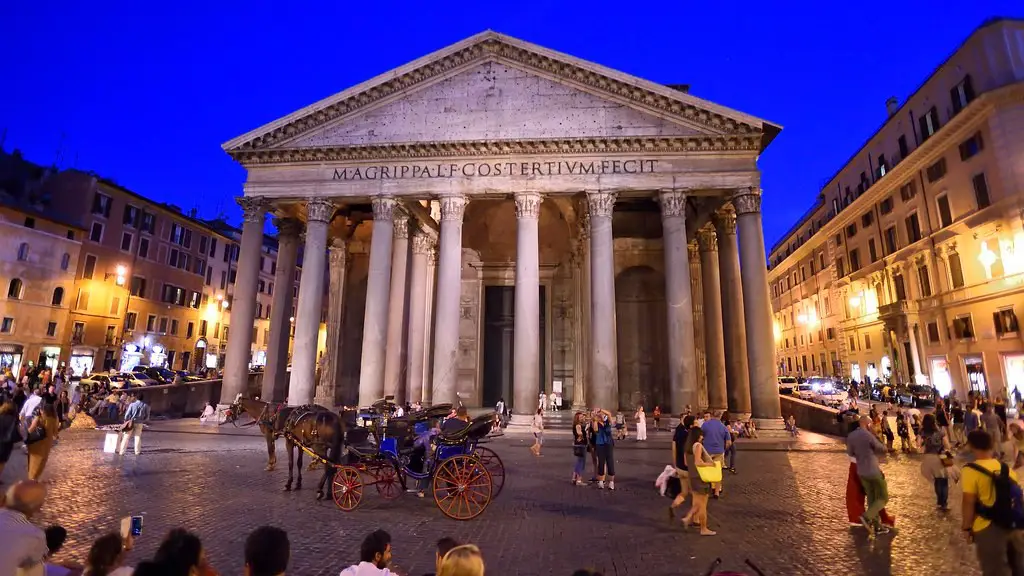Introduction to Ancient Rome
Ancient Rome has been a source of fascination for people all over the world. It’s long, vibrant history and its lingering legacy have left an indelible mark on culture and art. Rome has captivated and inspired generations and continues to do so, especially through the knowledge and insight of much-respected experts in the field. Here, we’ll examine precisely what time period is defined as “Ancient Rome.”
Time Period of Ancient Rome
The time period generally labeled as Ancient Rome crosses into both the Prehistoric and Ancient eras. Historians have linked its existence to the 8th century BC. Its adoption of a monarchy is thought to have taken place between the 8th and 6th centuries BC. During this time period, it is often described as a “classical civilization.” This form of monarchy endured for five centuries, spanning from the 753 BC to the 509 BC when its final Monarchy was overthrown.
What Qualifies as Ancient Rome?
Ancient Rome is best described as the civilization and government that dominated the lands around the Mediterranean region. This ideology would remain in power until its crash in 476 AD. It was a period of growth and development in culture, technological advancement, and of course, political structure. Rome’s growth was fueled by its ability to expand militarily, something they were able to do through their mastery of the Mediterranean. Through this dominance, Rome was able to govern an extensive collection of cities and territories, allowing them to create an empire of extraordinary size, power and influence.
Rome’s Cultural Impact
Rome’s influence was both geographically and culturally vast. The Latin language spoken by Romans of this era was eventually spread throughout the Roman Empire, leaving a lasting legacy and becoming the forefather of many languages spoken today. Rich in tradition, Ancient Rome was a period of development in architecture, art, engineering, and many other fields. They are credited with creating the very first form of concrete and urban planning, as well as a then-innovative form of road construction. The history of Ancient Rome is one that is filled with stories, characters, and mindsets that have been analysed, critiqued, and commemorated for centuries, who still find themselves in the minds of people all over the world in some shape or form.
Decline and Fall of Ancient Rome
What started out with the First Triumvirate between Julius Caesar, Pompey and Crassus resulted in the fall of the Roman Republic and the rise of the Roman Empire. In the wake of Caesar’s assassination, Roman politics experienced a further upheaval, led by Octavian Augustus. But while its impressive achievements of them remain intact, Rome gradually started to lose its power and influence from the 3rd century AD, caused by its steady decline in population, military power and territorial reach. This decline continued for centuries until the fall of Rome in 476 AD, resulting in the Western Roman Empire being dissolved, ushering in a new era in both Roman and global history.
Legacy of Ancient Rome
The legacy of Ancient Rome has been well-documented by both historians and sociologists, resulting in the rise of an interesting academic field called classical studies. Its influence is found in our daily lives; language, civic practices, holidays, and much of today’s western culture owes its origins to Rome’s imprint across the centuries. Ancient Rome remains as one of the most talked-about civilizations in human history, and is often admired as a cultural and political superpower.
Religion in Ancient Rome
Religion formed a strong part of life in Ancient Rome and it played a major role in their cultural identity. As the empire continued to expand, nascent forms of Christianity began to emerge and these new sects competed with traditional Roman religion. Although the Christian minority was opposed by the Roman Senate, the religion took hold among the population and slowly began to develop until it became so influential that it eventually became the state religion – a position it still holds today.
Law and Politics in Ancient Rome
Ancient Rome was a civilization that was plagued by ongoing political and legal disputes of their various political factions. Rome developed one of the most effective legal systems of its time, creating laws that were implemented by officials. Their laws covered everything from inheritance to criminal justice. This system of law is believed to have provided the foundation for today’s legal system, being adopted by many other nations and cultures around the world.
Economy In Ancient Rome
The economy in Ancient Rome was largely based around trade, with a wealth of resources held by the aristocracy. Merchants had their own unique form of currency that was used for both exchanging and buying of goods. This currency was used to facilitate trade and commerce, meaning that Rome was able to reap the rewards from its expansive empire and international commerce. They also heavily relied on tax revenue from its provinces, making it even more influential and powerful in the Mediterranean.
Military in Ancient Rome
Rome was also renowned for its renowned military and its strategic use of tactics during warfare. It is believed that their comprehensive system of fortifications, port engineering, tactics, and supply logistics enabled them to suppress their enemies far more effectively than any of their opponents. Rome’s ability to create coalitions with neighboring countries enabled them to easily gain an advantage over enemies while also protecting valuable iron ore resources.
Final Thoughts
Ancient Rome was a civilization that built an infrastructure and political system quite unlike any other. Its long-lasting and far-reaching impact is evidenced in its culture, laws and language, continuing to influence us and shape our perspective of the modern world. Its unique blend of ambition, creativity and innovation have inspired generations, and will likely continue to do so for many more centuries to come.


